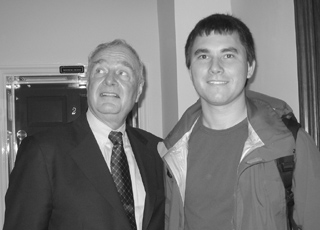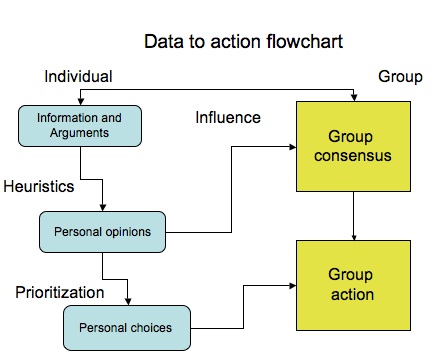Several people have commented today that I would likely not enjoy the Burning Man Festival, because people there would be overly radical. (See my prior post on the possibility of going.) Since the theme of the event this year is the relationship between people and nature, there will be a lot of engagement with issues in which I have personal political stances and pre-existing understandings. The kind of radicalism that people seem to be talking about is the idea that some kind of fundamental philosophical alteration of human understandings and interactions is required for environmental sustainability. The exact opposite view is to chalk up all environmental problems to ‘market failures’ that can be corrected by altering incentive structures. Clearly, each view is inadequate. The first lacks pragmatism, as well as a comprehensive conception of how a thing could possibly be brought about. The second presents the world in an overly simplistic fashion. In many areas relating to environmental choices, dialog is still very much required. In others, there is enough consensus among the reasonable for the focus to shift to implementation.
For the festival to have any importance, beyond that of a hedonistic collection of art and experiences, it needs to involve some real discussion. An open-minded representation of a fairly moderate, mainstream sort of view might provide some useful grounding, even if it might be frustrating for all involved. Having your complacency challenged can be unpleasant, but it is also necessary if views are not to ossify and those with different opinions are not to be completely alienated from one another. (See: recent post on partisanship) The hardest perspectives for me to deal with are wooly notions of spirituality that are entirely out of keeping with the ideals and modes of thought associated with science. I cannot but conclude that astrology is utter nonsense, and that human life in general would be better if everyone could completely and finally reject it as bunk. I expect that many people at the festival will not hold such views. That said, since my days of ferocious arguments with fellow members of LIFE about how crystal healing is nonsense, I have learned the point at which one can only agree to disagree.
Given that I still have no idea what I will be doing next year, I cannot say whether I will be free in North America with sufficient funds for such an expedition, when the time comes. That said, I don’t see any reason not to go, on the basis that the conceptions of the world I generally hold are not the same as those held by many other likely attendees. I have been missing debate since I left UBC, anyhow.
[Update: 20 November 2006] If you want to read a much more forceful – though not necessarily any more accurate – criticism of the Burning Man Festival, have a look at this description that Jessica sent me. Definitely worth a glance, before making a multi-thousand kilometre journey.




